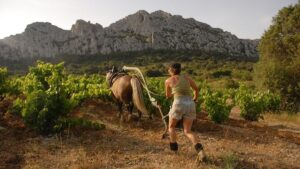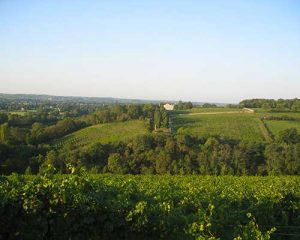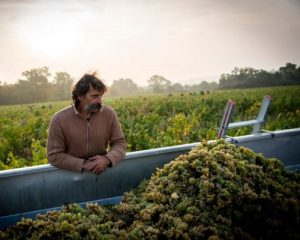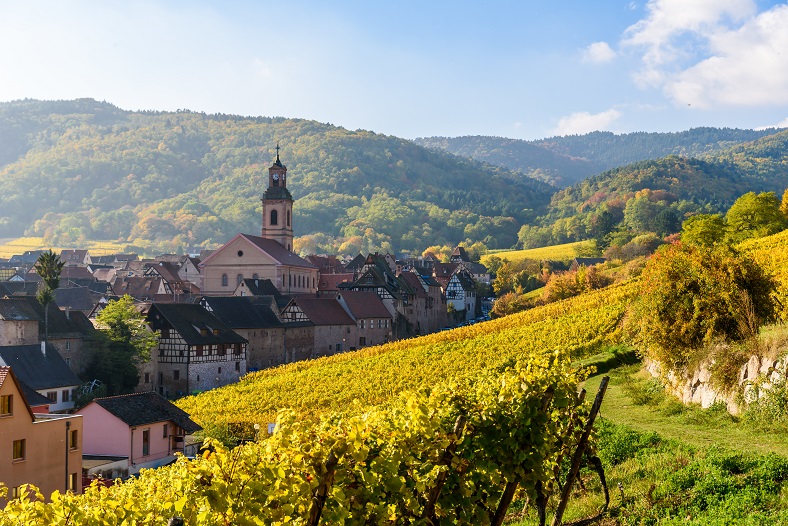
At Domaine Albert Boxler, wine is a family affair. Whilst the origins of its vines date back to 1672, the more recent winemaking and bottling venture began in 1946. Jean Boxler, grandson of Albert Boxler, represents the domain’s 3rd generation and granted us a special interview over the phone. This is what we discussed.
Its history begins in 1946, the year in which the domain makes its first foray into property ownership. The cousin of Boxler’s grandfather, a painter at the time, created the labels. And these labels have remained unchanged, evidence of a continuing family vocation, still intact and passed down through the generations. It’s also evidence of the rigorous work carried out in order to produce fine wines. Jean Boxler inherited this talent, firstly by observing his parents working, then by exchanging and tasting lots of wines with his family, so that he could refine his palate and find out what he liked, guided by the sage advice of his entourage. With the Boxlers, wine is therefore before all else a family affair and a tradition. The winemaker told us that quality depends largely on the work carried out in the choice of soil, of grape variety, of plant material and of growing methods.
However, for Jean Boxler, wine is first and foremost a form of expression. In the same way that a writer sees a page as a blank canvas on which to express their words, Boxler sees wine as a space of freedom, still intact, on which an expression can erupt, an idea of his own. So it is as an artist that he approaches wine.
Therefore, he wants it to always be authentic; sincere and precise. But what means the most to him is the enjoyment of tasting, something we have a habit of forgetting. The taste of the wine he loves is etched with balance, finesse, precision and restraint. It’s not about making flashy, explosive, enticing wines – Boxler refuses these facile aims at all costs. He prefers to substitute this ostentation for a tryptic of three qualities that are dear to him and ensure the completion of very fine wines: persistence, length and texture. “Anyone can make enticing wines”, he told us, “but rare are the winemakers who manage to create wines of a truly high calibre, with infinite persistence, elegant length and fine, delicate, voluminous texture.”
Such success, for Jean, is not a question of secrets: “Hard work makes fine wine”, he explained, insisting on the importance of working by hand in the vineyard. Indeed, there is no shortage of hard work here: across the 19 hectares owned by the domain, the majority of which is located on the extremely steep vineyards of Sommerberg, work is carried out by hand. Using machines on these sites is near impossible on the slopes and the ageing plot requires a lot of care. The trellising, pruning (vines are kept short to minimise yields), replanting, and control of plant life require many trips through the vineyard and detailed training for the domain’s employees.
In the vineyard, Jean is committed to working the plants, soil, and overall environment as respectfully as possible. Since 2003, he has followed the principles of organic agriculture, and this seems like the obvious choice to him: this is about being closer to nature and rediscovering the gestures of his parents and grandparents in order to support the vine in its development. He also aims to cultivate a farmer’s wisdom for himself, from observing and working, so that he can pick the most beautiful and ripe grapes.
He knows his vineyard and his terroir by heart. From the granite soil of Sommerberg, where most of his vines are located, he attempts to draw fine and elegant wines thanks to his rigour and strict yield controls; yields that he obtains by de-budding as well as respecting each plant. Each one has to be observed to make sure it reaches a balance in terms of its yield – not too much or too little, but a bearable amount. For this to happen, attentive work by hand is required, and this results in a yield of around 30-35 hectolitres per hectare for the grands crus. This control is applied in order to avoid dilution since, beyond this amount, in granite soils, the vine can’t produce wine without losing substance and volume.
Guided by a particular wine aesthetic, this rigour is also seen in the cellar, where Boxler intervenes as little as possible, leaving the wine to express itself while vinifying in large Alsace casks and in vats. This love of wine and flavour is shared with his clients, his colleagues, friends and other enthusiasts. The pleasure of wine is one that, as a winemaker, he feels throughout the year, seeing it through from the vine to the bottle. Once the harvest is finished, Boxler is already thinking about the next vintage, knowing that each of his actions will count.
Find all the Albert Boxler wines available at iDealwine
Here are some examples:
Signed Albert Boxler, this cuvée reveals a mineral intensity unusual for its grape variety. With a surprising freshness, hitting with great energy, this Pinot Gris will please enthusiasts who are keen on the more serious cuvées of the domain. Grown organically, the vine is nurtured to perfection by this great winemaker of Alsace who is committed to producing fine wines. This Pinot Gris is no exception to the rule!
Albert Boxler Gewurztraminer Reserve
This Gewürztraminer reserve produced by the Albert Boxler domain is one of the region’s indispensable references. Made partly from Brand and Sommerberg grands crus, this semi-dry wine carries the characteristics of its exceptional terroirs. This wine, far from the usual cuvées from this grape variety, opens with fine spiced and floral aromas, whilst to taste, its semi-dry and salty balance brings impressive energy.
This Riesling cuvée comes from young, Sommerberg vines as well as neighbouring plots. They produce particularly deep wines, in line with the rest of the domain. Here we find fine and elegant aromas as well as a precise, balanced palate, somewhat reserved in its youth. Impressive in its delicacy, this cuvée figures among the best, sharing the same vine treatment (organic agriculture) as more prestigious cuvées.
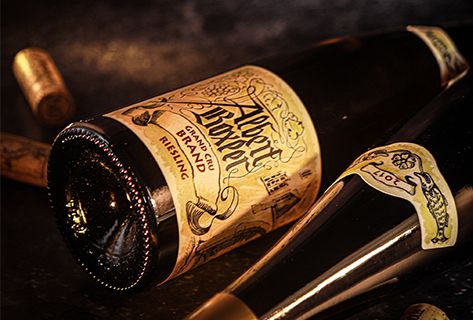
Domaine Albert Boxler, what the guides say
Guide Vert from la Revue du vin de France – 3*/3
Jean Boxler, perched in the heights of Niedermorschwihr, confirms his reputation as a rigorous winemaker with his latest vintages. He proffers all of his sophistication to the Sommerberg grand cru, a granite area where the steep slope makes work particularly difficult. The estate possesses 4 hectares, and 1.9 hectares of Brand grand cru. Different cuvées grown in several parcels are available; all of them have reached an exceptional standard.
The wines: the Pinot Blanc has an enveloping effect with its aromas of white fruit and its lightly warming finish. This year, cuvée K from the Brand grand cru has turned out to be the most accomplished once more. Dynamic and complex, it marks out its route through juicy flesh and a clear finish. Still on granite but from the Sommerberg side, the ‘classic’ cuvée dominates, supported by kumquat and limewood for a finish which marks the wine as particularly elegant. There is some disappointment with the Jeunes Vignes cuvée which lacks some of the complexity expected from a Grand Cru. The late Riesling harvest of the Sommerberg grand cru expresses an intense and vivid character of exotic fruit. The balance is interesting for this sweet wine which confers a sense of fresh fruit. Ample and generous, the semi-dry Pinot Gris Sommerberg W and its notes of hazelnut and praline will cause a stir at the table, especially once it has the patina of age.
Guide Bettane + Desseauve 2020 – 5*/5
Since his arrival in the family domain, he has produced 20 vintages, and Jean Boxler has gradually evolved his methods to now be vinifying at the same level as Alsace’s elite. The vines are splendidly located in Sommerberg, where Jean possesses a large plot, and also in Brand, two terroirs that shine with Riesling, the region’s finest grape variety. The viticulture is rigorous and careful, with élevages adapted to each wine and each vintage. They are practically faultless, whatever the grape variety, even the modest Sylvaner and Pinot Blanc. The 2016 vintage was a great success, with slightly less dense wines than those from the previous year, though they will still age beautifully. 2017 allowed the Sylvaner, Pinot Blanc, Muscat and of course the Riesling to distinguish themselves at the heart of the range. The choice is vast, even if few wines are available at the domain.

